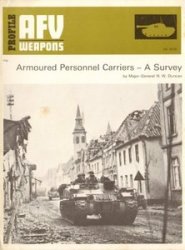Had he lived, Harding might well have been defeated in 1924 because of the scandals. Vice President Coolidge, unconnected with the troubles and not the type to surround himself with cronies of any kind, seemed the ideal person to clean out the corrupt officials. Coolidge was a taciturn, extremely conservative New Englander with a long record in Massachusetts politics climaxed by his inept but much admired suppression of the Boston police strike while governor.

Calvin Coolidge's quiet presidential style was a sharp contrast to the outspoken Warren Harding. When Coolidge died in 1933, humorist Dorothy Parker remarked, "How could they tell?"
Harding had referred to him as “that little fellow from Massachusetts.” Coolidge preferred to follow public opinion and hope for the best.
Coolidge defused his predecessor’s scandals by replacing Harding’s Attorney General Daugherty with Harlan Fiske Stone, dean of the Columbia University Law School. Soon Coolidge became the darling of the conservatives. His admiration for businessmen and his devotion to laissez-faire knew no limit. “The man who builds a factory builds a temple,” he said in all seriousness. “The Government can do more to remedy the economic ills of the people by a system of rigid economy in public expenditures than can be accomplished through any other action.” Andrew Mellon, whom he kept on as secretary of the Treasury, became his mentor in economic affairs.
Coolidge won the 1924 Republican nomination easily. The Democrats, badly split, required 103 ballots to choose a candidate. The southern wing, dry, antiimmigrant, pro-Klan, had fixed on William G. McAdoo, Wilson’s secretary of the Treasury. The eastern, urban, wet element supported Governor Alfred E. Smith of New York, child of the slums, a Catholic who had compiled a distinguished record in social welfare legislation. After days of futile politicking, the party compromised on John W. Davis, a conservative corporation lawyer closely allied with the Morgan banking interests.
Dismayed by the conservatism of Coolidge and Davis, Robert M. La Follette, backed by the farm Bloc, the Socialist party, the American Federation of Labor, and numbers of intellectuals, entered the race as the candidate of a new Progressive party. The Progressives adopted a neopopulist platform calling for the nationalization of railroads, the direct election of the president, the protection of labor’s right to bargain collectively, and other reforms.
The situation was almost exactly the opposite of 1912, when one conservative had run against two liberals and had been swamped. But times had changed. Coolidge received 15.7 million votes, Davis 8.4 million, La Follette 4.8 million. Conservatism was clearly the dominant mood of the country.
While Coolidge reigned, complacency was the order of the day. “Mr. Coolidge’s genius for inactivity is developed to a very high point,” the correspondent Walter Lippmann wrote. “It is a grim, determined, alert inactivity, which keeps Mr. Coolidge occupied constantly.”27 “The country,” the president reported to Congress in 1928, “can regard the present with satisfaction, and anticipate the future with optimism.”




 World History
World History









